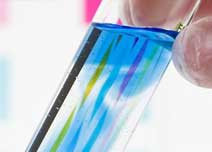Content
The ability of the body to break down sugar and turn it into usable energy after food is consumed. Metabolism declines markedly with age, meaning adults must make concerted efforts to use calories from Alcohol detoxification the food they eat. Characterized by consuming an excessive number of alcohol servings in a short period of time; five or more drinks for men, four or more drinks for women, ingested in about two hours.
Thus, whereas type 1 diabetes is characterized by a complete lack of insulin production, type 2 is characterized by reduced insulin production plus insulin resistance. The reasons underlying defective insulin secretion and insulin resistance, which are still under investigation, are complex and beyond the scope of this article . Type 2 diabetes, which in most cases develops in people over age 40, has a somewhat different pathophysiology than type 1. People with type 2 continue to produce insulin in early disease stages; however, their bodies do not respond adequately to the hormone (i.e., the patients are resistant to insulin’s effects). Thus, insulin does not lower blood sugar levels to the extent that it does in people without diabetes.
Make sure you know whether it is safe to drink if you are taking medicine for diabetes. If you are controlling your diabetes and don’t have other health problems, it may be okay to have a drink once in a while. Learning how alcohol affects your body can help you make the right choices. Feel free to drink tea and coffee — hot or iced — in moderation.
Increased Risks Of Damage To The Body If You Have Diabetes:
However, in a study of fasted type 1 diabetes controlled by hypoinsulinemic clamp, there was no difference in glucose response to a 1-h infusion of ethanol (peak level 26.2 mmol/l) or saline . In nondiabetic subjects, reduced glucose production seems to be matched by inhibition of glucose utilization at low and moderate ethanol concentrations (4–14 mmol/l) . Alcohol hypoglycemia has been reproduced by sustained (8-h) administration of ethanol, with blood levels up to 97 mmol/l . The effect is more potent after 2–3 days of fasting and potentially lethal in patients with chronic alcoholism who are treated with insulin .
For the first time in my life, I saw that my father was scared. The night before he left for treatment, he prayed to any possible being that he would find healing and the strength to resist the temptation of alcohol, and he did. Through intensive therapies, my dad was able to learn how to manage his depressive symptoms in positive, healthy ways, and break the cycle of psychological distress and self-medication that had permanently scarred his body. The Transitional living supportive therapeutic community of residential care showed him that he was not alone, and he found camaraderie and validation from peers who shared his struggles. Research published in the journal Diabetes Care indicates that moderate alcohol consumption may actually decrease a person’s risk for developing type 2 diabetes. The same study showed that excessive alcohol consumption increased the risk for developing the condition in women who were lean.
The Risks
Look for sugar-free versions of your favorite sodas to mix with liquors you enjoy. You can also sip on your favorite distilled spirit, neat or on the rocks. Whiskey, bourbon, scotch, and rye are all distilled spirits that don’t have carbs, so they make a decent drink for someone with diabetes. A martini made with gin or vodka, dry vermouth, and garnishes like olives, lemons, and baby onions is a good option for those on a diabetic diet. Dirty martinis also work well for people who are seeking to keep the sugar in their diet to a minimum.
The mechanisms underlying alcohol’s impact on blood pressure have not been fully elucidated. This process “puts people with diabetes at high risk of low blood sugar when they drink,” Arevalo said. Long-term alcohol use may be more dangerous for people with diabetes, as it may result in increased blood sugar levels .
What Is Type 1 Diabetes?
Alcohol addiction increases your risk for developing type 2 diabetes through a number of mechanisms. First, alcohol reduces insulin resistance and disrupts the body’s natural ability to regulate blood sugar levels. Heavy alcohol consumption can cause chronic pancreatitis, which leads to the development of diabetes. Consuming excess calories in the form of alcohol can also cause you to become overweight, a major factor in type 2 diabetes. If your drinking is unmanageable, rehabilitation treatment can help you take control of your relationship with alcohol, and prevent the physical damage caused by heavy drinking.
In most patients, the disease develops before age 40, primarily during childhood or adolescence. In those patients, the immune system attacks certain cells of the pancreas, called beta cells. Most importantly, insulin leads to the uptake of the sugar glucose into muscle and fat tissue and prevents glucose release from the liver, thereby lowering blood sugar levels (e.g., after a meal) . As a result of the https://essaylinkwriters.com/2021/05/27/what-is-the-difference-between-a-halfway-house-and/ immune system’s attack, the beta cells can no longer produce insulin. Consequently, the patient essentially experiences total insulin lack. Because insulin is a key metabolic hormone, insulin deficiency leads to major impairment of the body’s regulation of carbohydrate, lipid, and protein metabolism. Monitor blood glucose before, during and after drinking alcohol, and especially before going to bed.
They should also check levels before going to bed to ensure they are stable. If you have diabetic neuropathy or nerve damage caused by diabetes, you should talk to your doctor before consuming any alcohol. Nerves are very sensitive to alcohol and drinking can make nerve damage from diabetes Alcohol detoxification worse. It might increase any pain, burning, tingling, and numbness you might already be experiencing from your neuropathy. It also make it harder for your body to control the pain, which can make your symptoms feel worse. Hyperglycemia is when your blood sugar levels become extremely high.
If you do drink alcohol, drink it only with a meal or snack. Having as sugar alcohol and diabetes little as 2 drinks on an empty stomach could lead to low blood sugar.
Always Test Blood Sugar Before Having An Alcoholic Beverage
And stay hydrated with adequate water and other non-alcoholic unsweetened beverages before and after enjoying your cocktail. Diabetes can complicate and exacerbate the potential side effects of alcoholism, and vice versa. When diabetes and alcoholism co-occur, a specialized treatment program is needed to manage both comorbid conditions at the same time. Being intoxicated makes it harder to recognize the symptoms of low blood sugar and increases the risk.
- Alcoholism and diabetes may then occur in the same person at the same time.
- For people with diabetes, it means changes in diet, exercise, and other behaviors.
- According to the American Diabetes Association, you should be in a healthy range of between 80 mg/dL and 130 mg/dL before bed.
- Our helpline is offered at no cost to you and with no obligation to enter into treatment.
- This is true even when only modest amounts of alcohol are consumed.
- Heavy alcohol consumption (i.e., 200 grams of pure alcohol, or approximately 16 standard drinks, per day) can cause ketoacidosis in both diabetics and nondiabetics (Wrenn et al. 1991).
Take a look at the numbers and you’ll find that only moderate drinkers have less cardiovascular disease. Those on the opposite ends of the spectrum—people that drink heavily and those that don’t—have a greater risk. Severe intoxication from drinking alcohol that can result in impaired vitals and may require hospitalization to prevent fatal consequences. https://www.carpstore.nl/5-ways-to-keep-your-domestic-property/ Symptoms include vomiting, seizing, impaired breathing, blue or pale skin, low body temperature and unconsciousness. Symptoms include increased thirst, frequent urination, headaches and fatigue, which result from high blood sugar. Also known as juvenile diabetes, Type 1 diabetes is typically diagnosed in children and young adults.
How Does Alcohol Affect Diabetes?
Moreover, troglitazone itself may impair liver function, and alcohol might further exacerbate this harmful effect. Many impotent diabetic men also have lower than normal levels of the sex hormone testosterone in their blood. Alcohol reduces blood levels of testosterone and may thereby further exacerbate the existing hormonal deficit.
Alcohol intake can affect blood sugar levels for up to 24 hours. Have a quick source of glucose handy in case you find your levels are too low. Moderate drinking can be safe, but excessive alcohol use can exacerbate diabetes symptoms, damage the liver and create severe health problems. However, eating before drinking and periodically monitoring glucose levels can reduce the effects of alcohol on diabetes. If you experience a low blood glucose reading while drinking, stop drinking. Remember that you could get to the point that you are not aware that you’re having low blood sugar symptoms. Being drunk and hypoglycemia cause the same symptoms of sleepiness and dizziness, and this means your treatment could be delayed.





